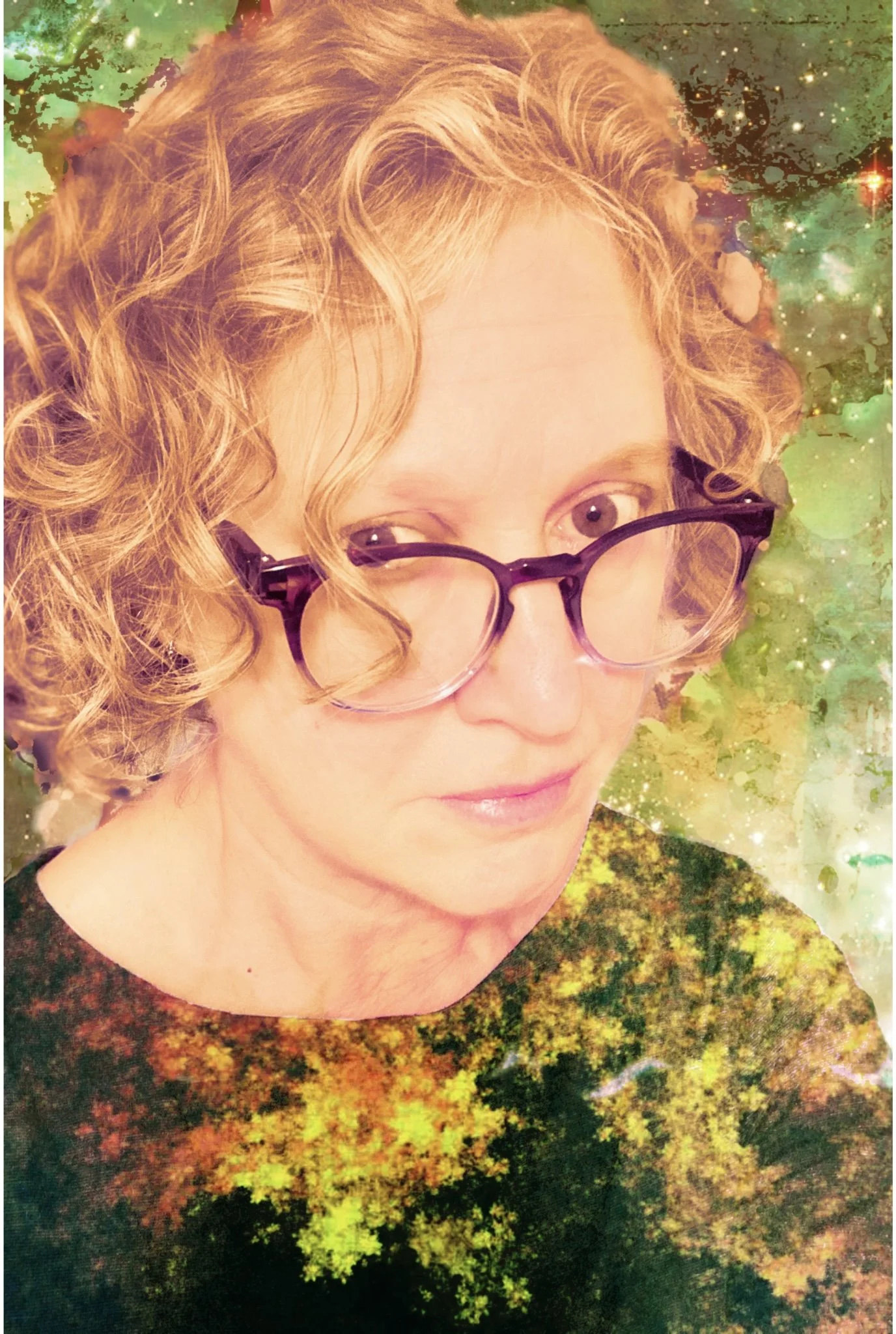“Horse, Come Back” by Ronda Piszk Broatch
Horse, Come Back.
I don’t get out much these days
and I could really use a ride
to my poetry reading tonight.
You could wait for me
in front of the winery,
or maybe stand at the door
and listen while I read
about quantum physics
and how the light we see
is distorted by gravity
and the dissipated lives
of our ancestors. Horse,
it was much safer sitting
on your back, not like riding
on SpaceX, which exploded
today. Still, the crowd was
cheering, progress made,
the brilliant cloud that filled
the sky more impressive
than the monstrous billow
surrounding the launch pad.
Horse, I remember how I knew
after seeing Luke, Han, and Leia
make the star-flooded jump
into hyperspace that there
was where I wanted to go,
that vacuum isn’t entirely
nothing, it is secretive matter,
errant atoms . . .
Horse, I digress. Let’s go
into the woods awhile,
or find another pasture
of cows, and I can help you
get past it this time. No more
fear. They have four legs,
two ears and two eyes,
just like you. And if it’s true
that cephalopods are
what aliens would look like,
look at me. I would dive
into the water just to swim
with octopuses, feel the way
they discover the world,
one sucker at a time. Horse,
I miss you, how you followed me
when we fell together in the sawdust
taking a tight turn, how I got back
in the saddle, and we left
for the open road. Let there be
cows, Horse, and octopuses,
and heck, tardigrades, too,
because they can put up
with almost anything. Even
SpaceX, as long as it’s
to the moon at impacts no higher
than 1.14 GPa.¹ If you come back,
I can put you in a poem
with everything else I love,
or maybe we can simply listen
to the way the wind sings
an ode to everything it touches:
my hair, your mane, the whiskers
on the funny faces of cows.
────────────
¹ The ability of tardigrades to survive impact shocks in the kilometer per second and gigapascal range was investigated. . . .This investigation tested whether tardigrades can survive impacts typical of those that occur naturally in the Solar System. It found that they can survive impacts up to 0.9 km s⁻¹, which is equivalent to 1.14 GPa shock pressure, but cannot survive impacts above this.
Ronda Piszk Broatch
Ronda Piszk Broatch is the author of Chaos Theory for Beginners (MoonPath Press, 2023), finalist for the Sally Albiso Prize, and Lake of Fallen Constellations, (MoonPath Press, 2015). She is the recipient of an Artist Trust GAP Grant. Ronda’s journal publications include Greensboro Review, Blackbird, Sycamore Review, Missouri Review, Palette Poetry, Moon City Review, and NPR News / KUOW’s All Things Considered. She is a graduate student working toward her MFA at Pacific Lutheran University’s Rainier Writing Workshop.
Headshot: Ronda Piszk Broatch
Photo Credit: Staff


